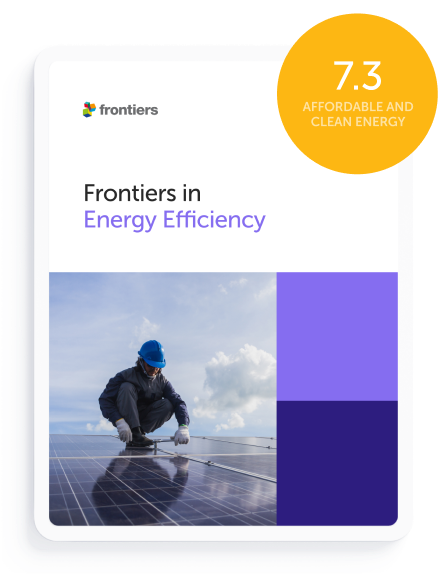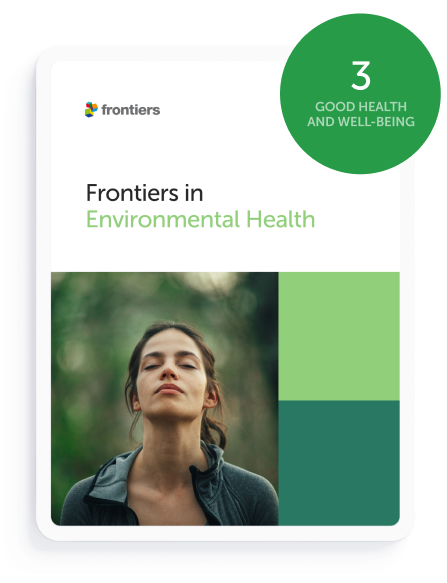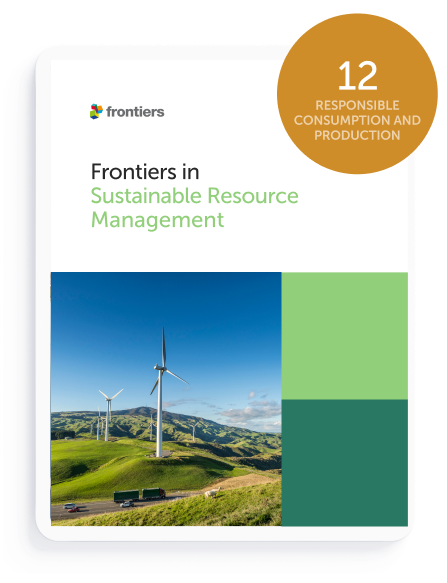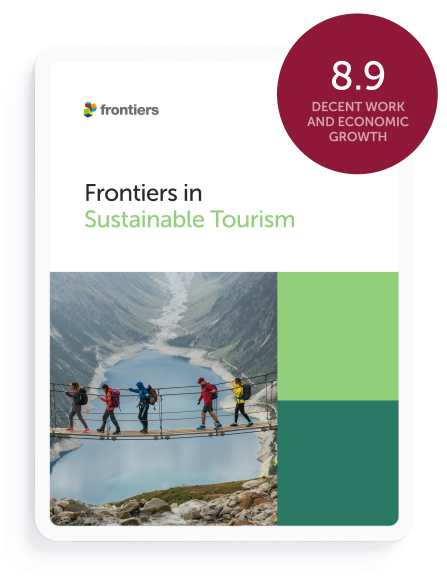Supporting researchers
Everything we do is based on a simple question
– what’s best for the researcher?
New journal launches
We’re publishing research in more fields than ever before
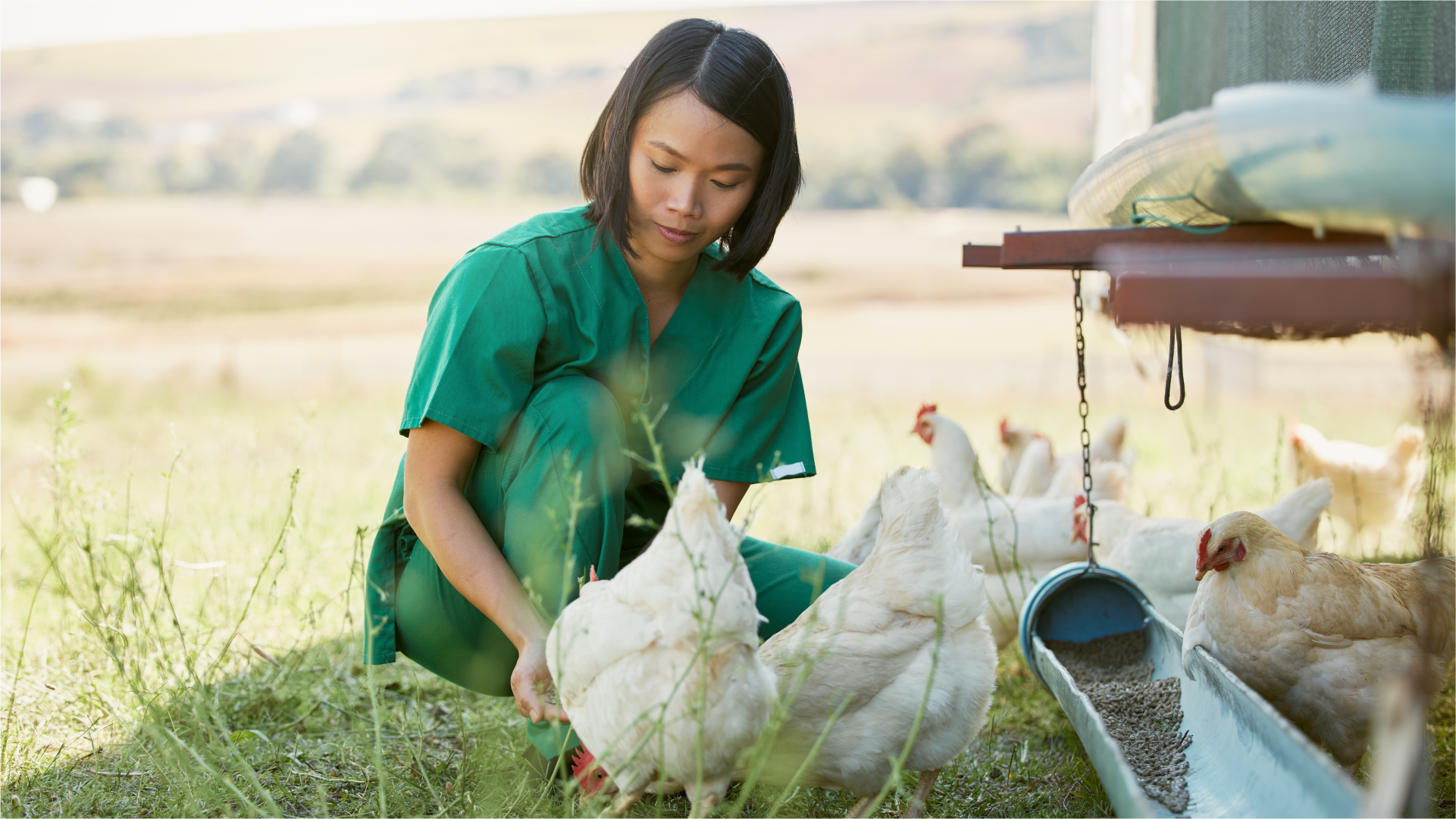
By the end of 2022, we had published 189 community-driven journals, many of which directly support the UN’s Sustainable Development Goals (SDGs). Led by active researchers, our journals cover more than 1,500 academic disciplines – from aerospace engineering to zoology.
Over the past year, we launched 49 new journals and 349 new sections
Frontiers in Aerospace Engineering
Frontiers in Amphibian and Reptile Science
Frontiers in Antennas and Propagation
Frontiers in Batteries & Electrochemistry
Frontiers in Behavioral Economics
Frontiers in Child and Adolescent Psychiatry
Frontiers in Energy Efficiency
Frontiers in Environmental Archaeology
Frontiers in Environmental Economics
Frontiers in Environmental Engineering
Frontiers in High Performance Computing
Frontiers in Lab-on-a-chip Technologies
Frontiers in Language Sciences
Frontiers in Membrane Science and Technology
Frontiers in Metals and Alloys
Frontiers in Nuclear Engineering
Frontiers in Quantum Science and Technology
Frontiers in Sustainable Energy Policy
Frontiers in Sustainable Resource Management
Frontiers in Sustainable Tourism
Our newly-launched journals in 2022
Our new journals support Sustainable Development Goals
Our partnerships
We actively create strong links to bring the benefits of open science to more people

Influencing global thinking on open science
“It is more important than ever to identify and promote innovative, cutting-edge thinking if we are to address economic, social, environmental, and technological challenges. Our exciting new partnership will feed valuable insights and expertise into global initiatives … to shape prosperous, resilient, and equitable economies and societies that create opportunity for all.”
Martina Szabo
Head of Knowledge Communities, World Economic Forum
In November 2022, we formalized our long-standing partnership with the World Economic Forum (WEF) by becoming a platform partner
As part of the new agreement, Frontiers joined the WEF’s Centre for New Society and Economy to share and promote evidence-based benefits of open science, and to influence global thinking on its positive impact on society.
Our policy outreach
Frontiers’ Policy Labs initiative seeks to strengthen the connection between robust scientific research and informed policymaking. We create a space where global experts and thought leaders can discuss and strengthen the dialogue between science and policy.
In August 2022 in a landmark move, the White House Office of Science and Technology Policy unveiled vital new policy guidance to make the results of publicly funded scientific research in the United States immediately free to access and available to all. We strongly backed that guidance, the so-called ‘Nelson memo’.
We asked some leading experts to share their reactions to the Nelson memo – the signal it sends, its likely impact, and the challenges facing its delivery.
Read their thoughts here ›
National agreements
We pioneered fully-transparent national agreements to improve the ways researchers are supported when publishing open access.
Our agreements simplify the process for authors publishing in Frontiers' journals and help contribute to the growing number of research articles that are openly available to all.
As of 2022 we have 10 national agreements in place, with Austria, Finland, Italy, Luxembourg, Norway, Qatar, Spain, Switzerland, Sweden, and the UK.
Sweden
1st nordic
national OA deal
Austria
Landmark
national OA deal
Norway
2nd nordic
national OA deal
Luxembourg
Landmark
national OA deal
UK
Largest national
OA deal
Qatar
1st OA deal in
the Middle East
Finland
Landmark
national OA deal
Spain
Landmark
national OA deal
Italy
Landmark
national OA deal
Switzerland
Landmark
national OA deal
We also have consortia with
Institutional partnerships
Our institutional partnerships streamline the funding process for researchers and institutions. This means that authors are released from some or all of the responsibility for article processing charges when they publish with us. We now have 658 institutional partners – including 136 new partners who joined the program in 2022. They include:
Publishing partnerships
Our partner journals
Acta Virologica
Chief editors
Avelino Núñez-Delgado, University of Santiago de Compostela, Spain
Irene Ortiz-Bernad, University of Granada, Granada, Spain
Acta Virologica
Chief editors
Avelino Núñez-Delgado, University of Santiago de Compostela, Spain
Irene Ortiz-Bernad, University of Granada, Granada, Spain
Acta Virologica
Chief editors
Avelino Núñez-Delgado, University of Santiago de Compostela, Spain
Irene Ortiz-Bernad, University of Granada, Granada, Spain
“We chose Frontiers for their open access expertise, systems, and flexibility – all of which are being delivered upon. Moreover, we are particularly enjoying working with their friendly and creative team”
Maggie Simmons
Director of Publishing, Geological Society of London
Our publishing partnerships enable societies and institutions to transition their journals to open access, while benefiting from our state-of-the-art platform.
We established seven new partnerships with societies and other organizations in 2022 – including the European Journal of Cultural Management and Policy (EJCMP), the journal of the European Network on Cultural Management and Policy. EJCMP is the first journal in the humanities field to transition to Frontiers under the gold open access model, marking a significant step for both partners.
In 2022, we increased the number of open access articles published in partner journals from 312 to more than 800 – an increase of 156% – as well as unlocking access to over 6,000 archived articles.
Our media outreach
Frontiers’ articles achieved international visibility last year

In the news
Frontiers’ articles were featured over 29,000 times by international news outlets in 2022 including The Washington Post, The Guardian and BBC World News.
2022 news and feature highlights
-

Replay of life before death
The Guardian | 23 Feb 2022
Imagine reliving your entire life in the space of seconds. A study published to Frontiers in Aging Neuroscience suggested that your brain may remain active and coordinated during and even after the transition to death, and be programmed to orchestrate the whole ordeal.
-

Polluting WWII shipwreck
The Washington Post | 29 Oct 2022
Researchers discovered that an 80 year old historic World War II shipwreck is still influencing the microbiology and geochemistry of the ocean floor where it rests. In Frontiers in Marine Science, they showed how the wreck is leaking hazardous pollutants, influencing the marine microbiology around it.
-

Happy monkey, happy gut
Bloomberg | 11 Nov 2022
Friendly monkeys have higher levels of helpful bacteria and lower levels of potentially disease-causing microbes in their guts, according to a study published in Frontiers in Microbiology. Monkeys engaging in friendly social interactions with peers are more likely to have an abundance of gut bacteria known to benefit the immune system.
-

Vegetables and cardiovascular disease
BBC | 21 Feb 2022
A sufficient intake of vegetables is important for maintaining a balanced diet and avoiding a wide range of diseases. But might a diet rich in vegetables also lower the risk of cardiovascular disease? Unfortunately not, according to a study published in Frontiers in Nutrition.
On social media
In 2022, Frontiers’ articles were mentioned more than 363,000 times across all social media channels – an increase of 65% over the previous year.
2021 social media highlights
-

Bedtime behavior for parents
Twitter | 784 interactions
Researchers studied parental methods to help toddlers sleep across 14 cultures and the effect on the child's temperament.
-

Shipwreck forms sea-life habitat
Facebook | 638 interactions
Historic wooden shipwrecks alter seafloor microbial communities and provide a potential new habitat for marine life.
-

Primates' virtuoso singing duets
Twitter | 1,023 interactions
The notes within duets between female and male Gursky’s spectral tarsiers are taxing for the singers, presumably due to physiological constraints.
-

Diversity in digital health
Facebook | 621 interactions
As part of our women in science series, Professor Wendy Chapman discusses motivates her to continue pushing for the digital transformation of healthcare.
We’re listening
We obsess over the needs of the research community and how we can meet those needs

We value your feedback
We want to know what works for our community and how we can empower researchers most effectively. Over the past year, we’ve conducted:
More than 100 in-depth interviews with our editors and reviewers about their experience
2,706 feedback surveys with our authors
46,912 feedback surveys with our editors
1,860 feedback surveys with our topic editors and coordinators
You rated our services as high quality
Since 2021 we have been asking visitors to our website for their thoughts and opinions on our work. Thanks to the feedback of more than 22,000 visitors, we have a full picture of how well we’re supporting the research community and what we can improve.
Last year we continued to receive exceptionally high quality ratings, including for our editorial boards and the articles we publish.
Support when you need it
Based on your feedback we launched a live online chat function, so that you can contact our customer service team when it suits you best.
The live chat is accessible from our online review forum and enables authors, reviewers and editors to receive instant support from customer service specialists during the peer review process. A short waiting time for assistance (1.4 second on average), and a quick resolution for queries (10-minute average duration) ensure the best peer review experience.
Our live chat
1.4 seconds
average waiting time
10 minutes
average chat duration
76,888 feedback surveys with our reviewers
A year-long survey to gather thoughts from our website visitors
This feedback informs our work – from the smaller details of our everyday operation to our bigger objectives for the year ahead.
Our support
In 2022 we continued to make strides in improving how we serve our community. Researcher-centricity - from better communication to continuing to develop our review forum - was top of our agenda.



